Fixed Rates
30 yr
25 yr
20 yr
15 yr
10 yr
Compare Terms
Compare Rates
Real APR
Adjustable Rates
Qualification
Affordability
Renter Affordability
Rent vs Buy
Price per Square Foot
Jumbo
Home Sellers
 Renter Mortgage Affordability Calculator
Renter Mortgage Affordability CalculatorThis calculator estimates the will estimate the size of a mortgage you could afford based on the size of your monthly rent payment. We also offer a separate affordability calculator based on debt to income & down payment requirements.
This calculator assumes that your property tax, insurance and maintenace expenses will be offset by the appreciation of the value of your home, though these expenses are deducted from your monthly rental payment in order to show you what equivalent mortgage amount and home price would correspond with the same all-in monthly payment as your current rental payment.
Guide published by Jose Abuyuan on September 18, 2020
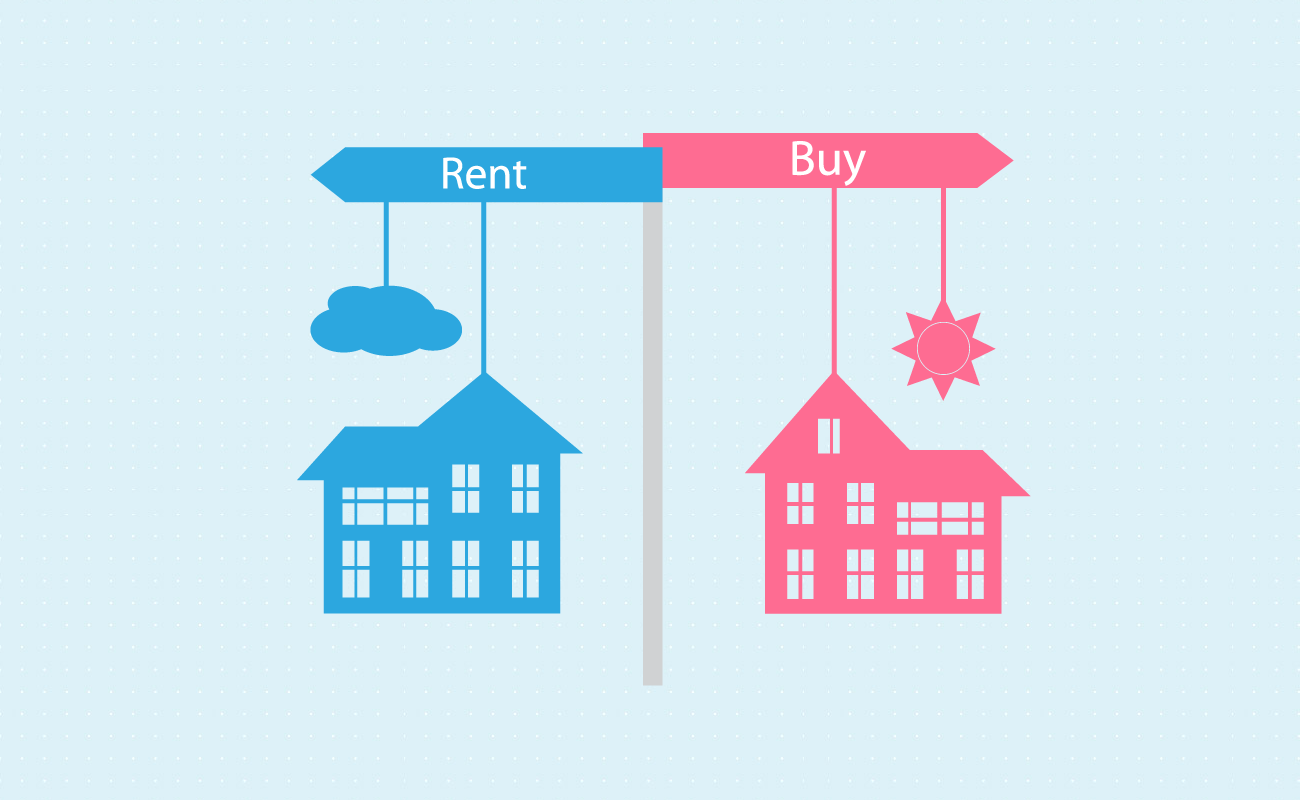
Like many people, you probably dream of the day you have a home of your own. This option makes plenty of financial sense for most people. The longer you stay somewhere, the costlier it is to rent. For most people who tend to live in one place for most of their lives, home ownership is the practical end-goal. But what if you’re not like most people? Settling down might not be part of your life plans. And if it were, it might be too early in your career to consider that option.
In addition, owning a home is a big responsibility. Your obligations go beyond making timely mortgage payments. There are costs and chores to home ownership that the tenant is never expected to take care of. Are you ready and willing to take on these commitments? Consider these and other important questions before deciding to buy a house.
Deciding whether you should buy a house is a difficult undertaking. This is because of the conflicting messages you get from just about everyone. Real estate agents often wax lyrical about the advantages of home ownership. Others swear by living closer to where you work and shop, which almost certainly entails renting. And some sources of advice may have conflicts of interest.
In truth, there’s no single answer that fits everyone. Where you fall on the renting versus owning spectrum depends on several factors. Chief among these is your financial status. This includes your income, debts, and the type of career path you are taking. Your life choices will also play a role on whether you should rent or own.
Thus, we can make general assumptions about which option works best for some people:
| Rent or Buy | Renting | Home Ownership |
|---|---|---|
| Length of Stay | Ideal for people who don’t stay in one place for more than a few years. | Better for people who plan to settle down in one place permanently. |
| Career and Financial Stability | Makes better sense for people whose careers are just starting. | Usually reserved for people with more stable careers and finances. Married couples with two incomes are among them. |
| Long-term Costs | In the short term, leases are much cheaper than mortgage payments. | Fixed-rate mortgages may be cheaper than the rising costs of rent. |
| Location | Renting for the long term makes sense if you live in high-cost areas. | If you can opt to move somewhere cheaper, buying is the better long-term option. |
In practice, there’s plenty of room for nuance. Compare the individual merits of each option with care. The decision you make should be tailored to your immediate needs and eventual life goals.
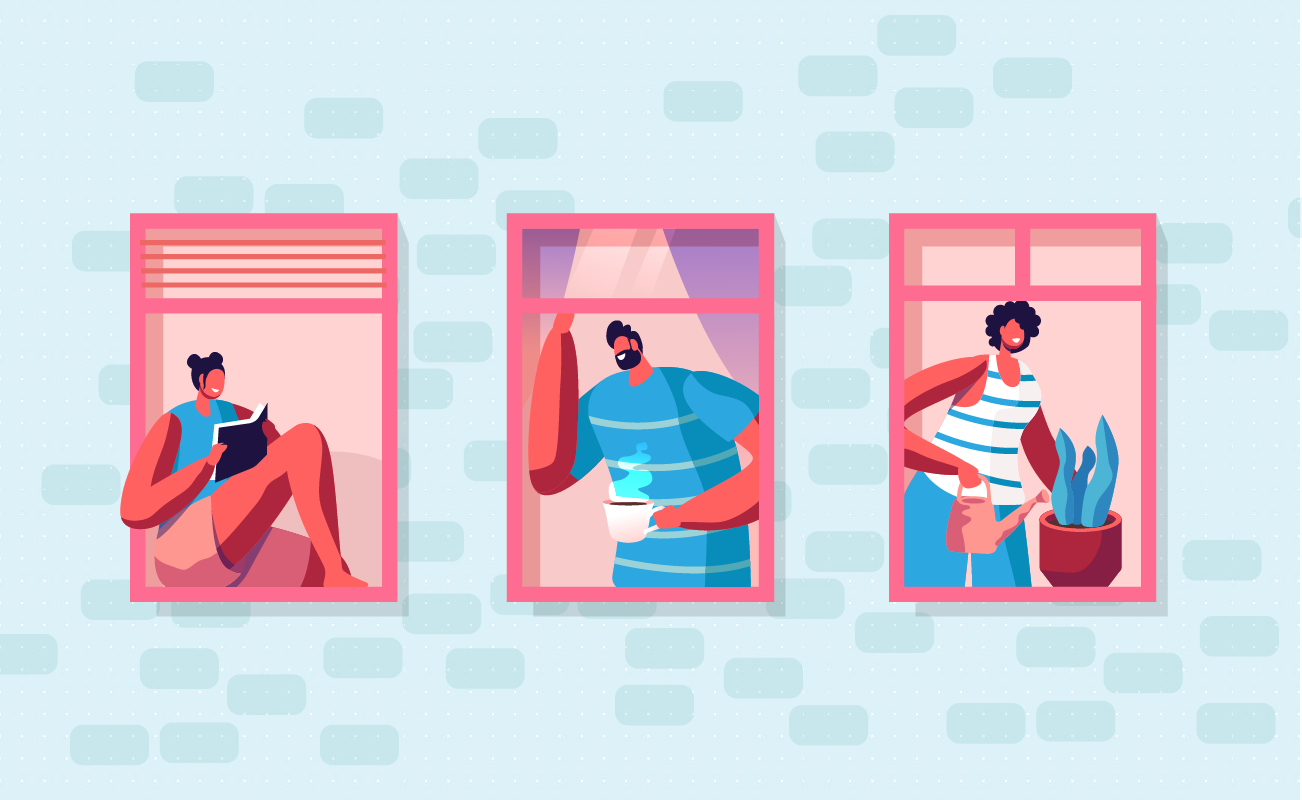
The first major advantage of renting is mobility. The lease you sign is temporary, though you can renew it as often as you can. Thus, you’re not bound to your current residence. This works best if you need to change apartments as dictated by your job. A career that demands a lot of travel will make home ownership impractical.
Another chief advantage of renting lies in price. Rents are cheaper than mortgage payments, at least in the short-term. This is the reason why most people who move out look for a place to rent. Even in the priciest neighborhoods, renting may be more cost-effective than ownership.
While the costs of renting and mortgage payments may seem similar, they are quite different below the surface. Beneath the costs of a mortgage are both the payments to the debt itself and the escrow charges. These are added to your mortgage payment and are paid on your behalf:
And that’s not all. The costs of ownership go beyond your monthly payments. Maintenance and repair costs are hard to quantify on an annual basis since they can vary. HomeAdvisor estimates that the average homeowner spends $1,105 on regular maintenance and $416 on emergency repairs a year. Tenants do not need to address these costs as they fall under the purview of their landlords.
Finally, renters hold fewer responsibilities than homeowners. The costs of all repairs in a property you own fall under your shoulders. Not so when you are a tenant. If you find something broken in your apartment, all you really need to do is call your landlord. Apartment tenants also forego the many maintenance responsibilities that a homeowner must address. There’s no need to rake leaves or inspect roof tiles for an apartment you don’t own.
Although the landlord is liable if their unit is damaged during an accident, their responsibilities have limits. Their policies do not cover any damages to things that belong to their tenants. Tenants must have renter’s insurance to protect their property during untoward incidents. This policy must cover all your belongings, so it’s important to make an inventory before getting one. Don’t be too hung up on the price, though. These policies rarely approach $100 a month. According to the Insurance Information Institute, the average cost of renter’s insurance is around $15 a month.
Renter’s insurance also protects you from any liabilities you incur during your stay in the residence. This would include people getting injured in your unit and any damage you leave on your landlord’s property.
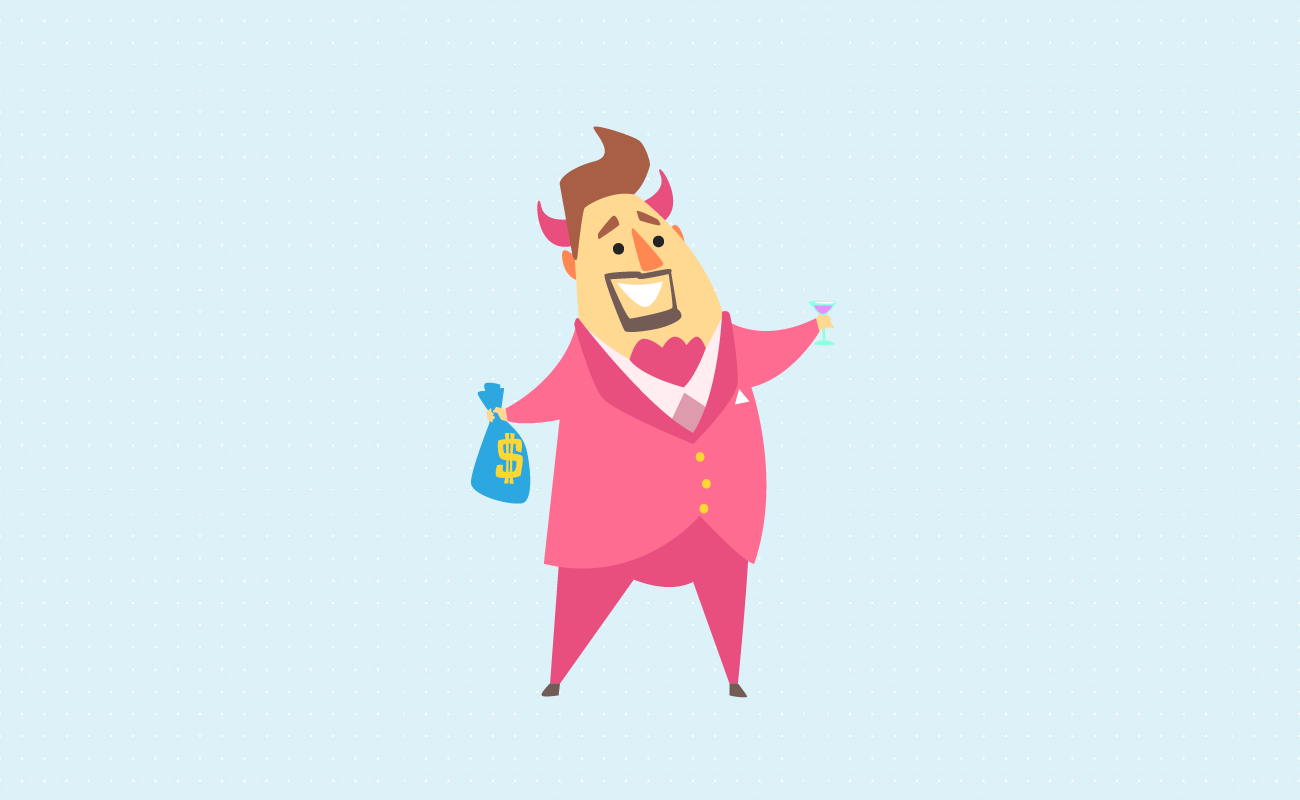
Dealing with the landlord is the most difficult prospect of renting. The landlord, by virtue of owning your home, wields a lot of power over you. This is all fine and dandy if you rent from a reasonable person. However, the world is not in want of landlord horror stories. These range from the abysmally incompetent to the outright malicious.
Many landlords maximize profit by being stingy with repairs and maintenance. At the worst end of the scale are full-blown slumlords. Unscrupulous landlords are notorious for allowing their properties to remain in states of disrepair to maximize profits. In other places, predatory landlords may deliberately make tenants uncomfortable to drive them out.
Even if your landlord isn’t a straight up Charles Dickens villain, you may still have a few problems with them. They might not respond to your repair inquiries and other issues in a timely manner. This can lead to a lot of problems down the line.

If you’ve ever needed to pay for an emergency repair out of pocket, don’t worry. Your landlord must cover any of the costs you incur. Usually, this is done by deducting it from your future rent payments. If your landlord refuses to pay you back, you can get legal help to address these problems.
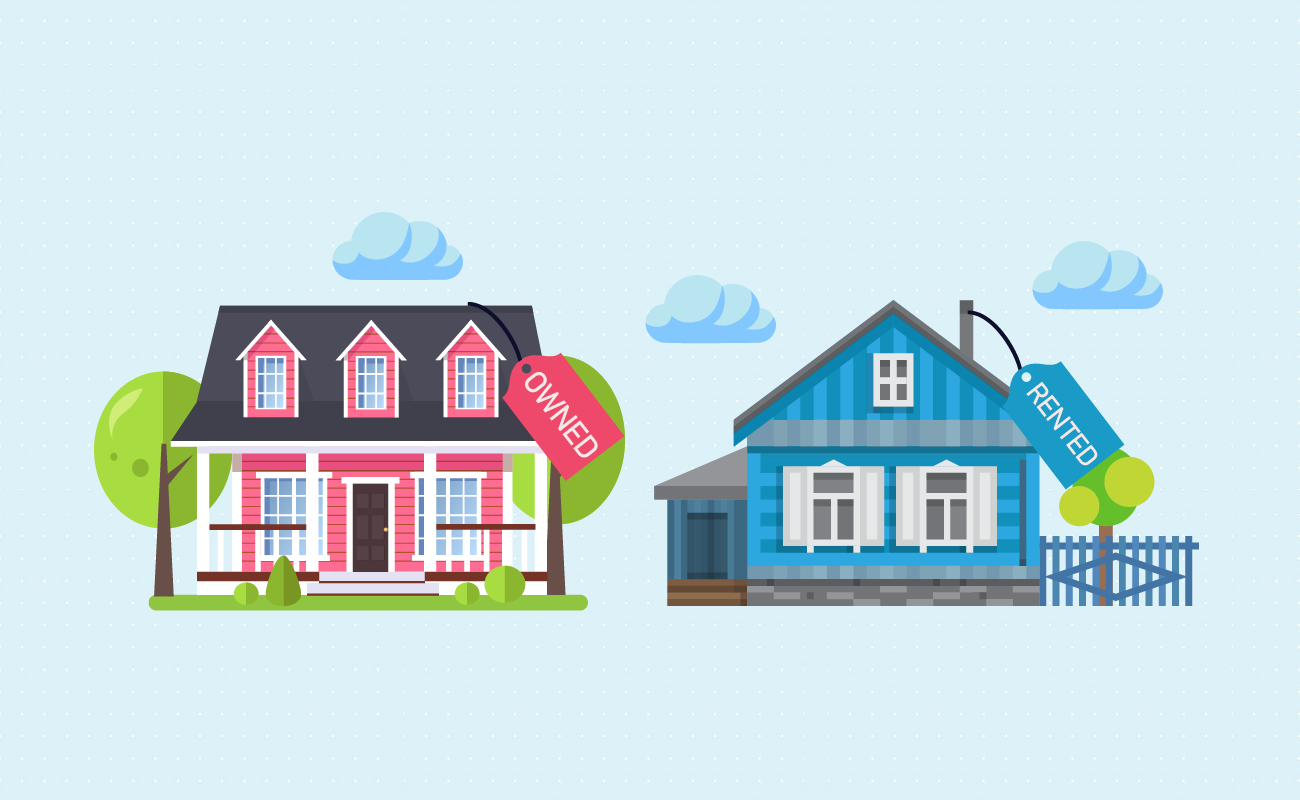
When you first enter your apartment, you might see it as a blank slate ready for decking out. It’s tempting to add nicer walls, floors, fixtures, and appliances to the place you rent. But remember, it isn’t a true place of your own. Renovating the unit you lease is hard to justify financially, even if your landlord allows it. (Note: The landlord, not you, benefits from this in the long run.)
You wouldn’t have any reservations when the house belongs to you. The walls, floors, and fixtures can take on any color and shape your heart desires (as long as it’s up to code). Each improvement you make adds value to your home, and they will be yours for as long as you want.
Try not to go overboard with your customization, though. After all, if you ever need to sell your home, you’ll need to make it attractive to the next buyer. There’s a happy medium between an eye-searing customized space and a bland beige box.
One of the few justifiable changes you can make to your apartment is the wall coverings. Paint and removable wallpaper aren’t too expensive and can make the place more inviting. Often, your landlord will allow you to repaint the property to your liking. But they also ask you to paint it back to the way it was before you leave. Pursue this option only if you think it’s worth the effort.
Another way you can customize your rental is by replacing lighting fixtures. With your landlord’s blessing, you can swap these out with little fuss. Be sure to keep your unit’s original fixtures safe until your lease expires. This way, you can put them back where they were before.

Playing around with your own place isn’t the only thing to look forward to with home ownership. The most significant benefit is the savings you make in the long run. Renting is an expensive proposition as time goes by. The longer you stay in an apartment, the more money you waste on rent. That’s money not going toward building wealth. If you used that money for a mortgage, you would be building up equity in a home that will eventually be yours.
How do you know when it’s time to buy a house? When the monthly costs of renting far exceeds the mortgage of a home. How much this costs varies from place to place. In 2019, the median rent for a one-bedroom apartment in the United States was $1,216, according to Zumper. These are much higher in the country’s most populous metro areas, where rents could easily exceed $2,000. In contrast, monthly payments for fixed-rate mortgages averaged $1,275 for a 30-year term and $1,751 for a 15-year term.
One way to determine this is to multiply your monthly rent payments by 200. This represents the number of payments you must make over the course of 16 years and three months. If the resulting value approaches the cost of a house, it might be time to consider buying.
If your rent costs $1,600, let’s see how much you would’ve paid during that time:
= $1,600 x 200
= $320,000
In about 16 years, you could’ve paid $320,000 on mortgage payments. Not everybody lives in a high-rent area, of course, so the time it takes could vary. If you plan to live there long-term, you might consider buying a home soon.
For a more detailed example, we’ll use the calculator above. Suppose you qualified for a 15-year fixed mortgage with an annual percentage rate (APR) of 2.5 percent. Your area’s annual property taxes can cost you $2,200 each year for the house you want. Meanwhile, your insurer charges you $1,200 each year on your property. You pay $60,000 as a down payment.
Using a $1,600 monthly rent and $20 in renter's insurance from the first example as our monthly mortgage budget, let’s see how much mortgage you can afford:
| Down Payment Percentage | Down Payment Amount | Home Price | Loan Amount |
|---|---|---|---|
| Custom | $60,000.00 | $260,463.15 | $200,463.15 |
| 20% | $50,115.79 | $250,578.94 | $200,463.15 |
| 10% | $22,273.68 | $222,736.84 | $200,463.15 |
| 5% | $10,550.69 | $211,013.84 | $200,463.15 |
| 3.5% | $7,270.68 | $207,733.84 | $200,463.15 |
| 0% | 0 | $200,463.15 | $200,463.15 |
If you decide to buy now, you have a maximum budget of $260,463.15. There could be a modest-sized home that fits your budget in that price range. That is, of course, if you look in the right neighborhoods.
Rent hikes are a reality for most tenants. A landlord can have many legitimate reasons for raising rents. Upkeep costs and major repairs don’t come cheap, after all. And as money loses value through inflation, these prices will predictably rise. As a result, you can expect a reasonable increase of at least 3 percent in your rent each year.
Fortunately, your landlord cannot raise your rent until your lease needs to be renewed. If your lease lasts one year, for instance, you can only receive a rate increase after that span of time. However, you’ll still need to expect these increases into your long-term budget.
If you feel like your rents are too high, you have two options. You can leave and find another, cheaper place, or you can talk to your landlord. If you’ve paid on time and took good care of the property, you might have a trump card on your hands. Your landlord might think that keeping you around is more profitable than looking for a new tenant.

When apartment hunting, try to look for places with rent control or rent stabilization. These regulations put a cap on the amount your landlord can charge during a rent increase.
Another advantage that buying a home has is its hedge against inflation. Most people buy homes with fixed-rate mortgages. These lock in an annual percent rate through the life of the mortgage. Thus, your payments stay the same all throughout the loan.
Rents all around you could be rising, and you’re still paying the same amount on your house. Moreover, mortgages don’t last forever. Eventually, your house will be paid in full and you’d be free from mortgage payment obligations.
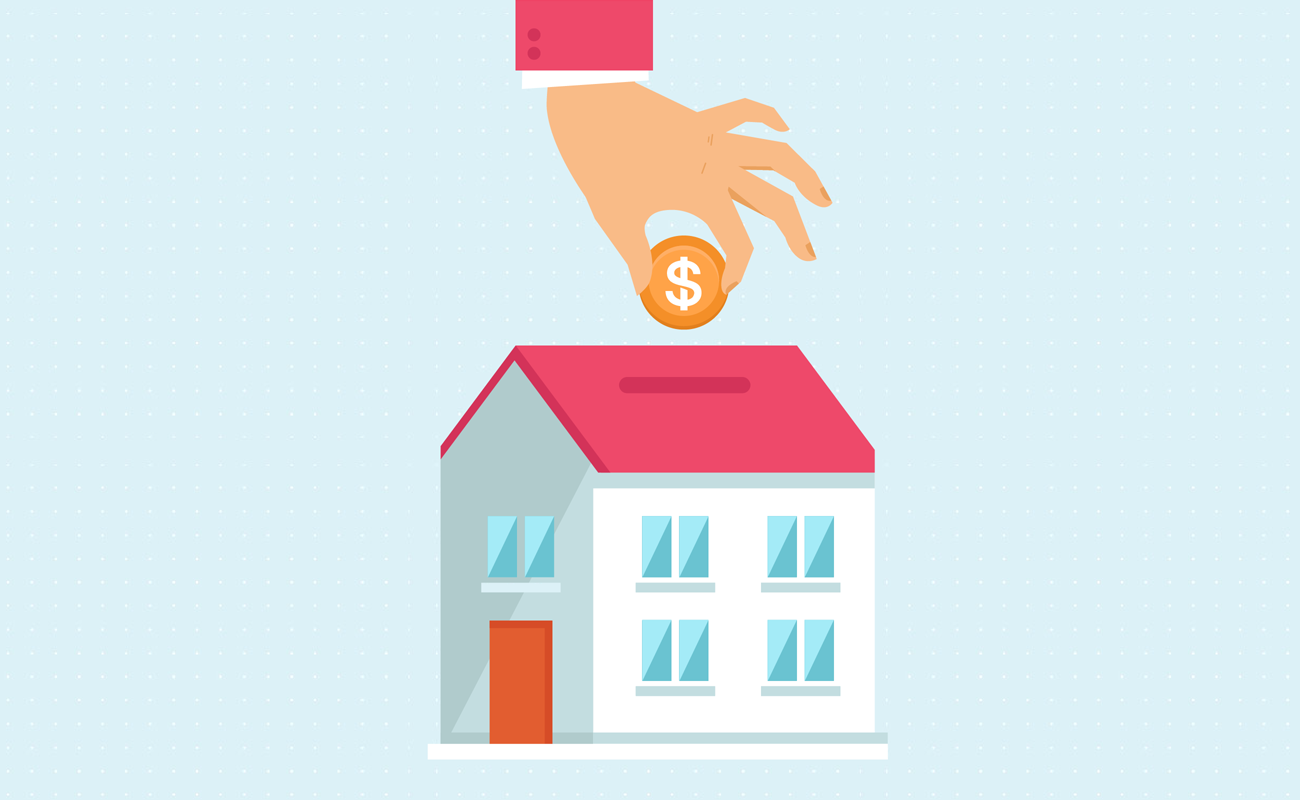

Get a good idea of how much a home costs in your preferred area. From there, you can estimate how much you’ll need to save for a large down payment.
So, you’ve decided that home ownership is your new end goal. For the time being, you’ll need to save up for your biggest home buying expense: your down payment. Most down payments are small. In 2008, the median down payment was around $15,490, or around 5.7% of the median home price of $270,000. You can save more money in the long run, however, if you pay a 20 percent down payment.
First off, a high down payment leaves a good impression on your lenders. This indicates that you can afford to pay a mortgage on time. Because you’re less at risk of defaulting, lenders will be quite generous with their loan terms. They will give you a much lower APR. You would also need to borrow less money to buy the home. Both factors lower your interest payment, which is the fee you pay your lenders for using their money.
A 20 percent down payment also bypasses private mortgage insurance (PMI). PMI does not benefit homebuyers in any way. This coverage is meant to protect your lender in case you default on your mortgage. However, the law requires lenders to remove PMI once your loan-to-value ratio reaches 78 percent. By then, you’ve gained 22 percent equity on your home.
MIP payments for FHA and USDA loans usually last for the entire life of the loan. Unlike PMI, you cannot get rid of monthly MIPs unless you refinance to a conventional loan. VA mortgages, however, do not have an MIP, but they impose VA funding fees. VA funding fees are an added cost that depends on your loan amount and down payment. The funding fee rate also increases if you’ve used your VA benefit in the past.
Besides your down payment, you’ll need to account for your mortgage’s other costs. These can vary with the type of home you choose. The myriad closing costs of a home can be confusing. Some of these charges cover important legal paperwork. Meanwhile, others are non-essential administrative fees added by the lender. Zillow provides a list of some of the common items included in a mortgage’s closing costs.
Closing costs can range between two to five percent of your home’s value. For a house that costs $300,000, your closing costs would be between $6,000 to $15,000. On average, Americans pay around $3,700 in closing fees. But this can vary.
The amount of your closing costs can take you by surprise. But stay calm and review your mortgage statement with care. You can reduce closing costs by negotiating with your lender and having other charges waived. Of course, you can ask your lender for a no-closing cost mortgage, but this means that the fees are just added to the loan amount. You may also shop around for other lenders who are willing to waive some of these costs.

Instead of receiving random items during holidays and events, ask your family for cash gifts instead. You don’t need another knick-knack cluttering up your place. What you do need is every bit of money you can save for important purchases, such as buying a home.
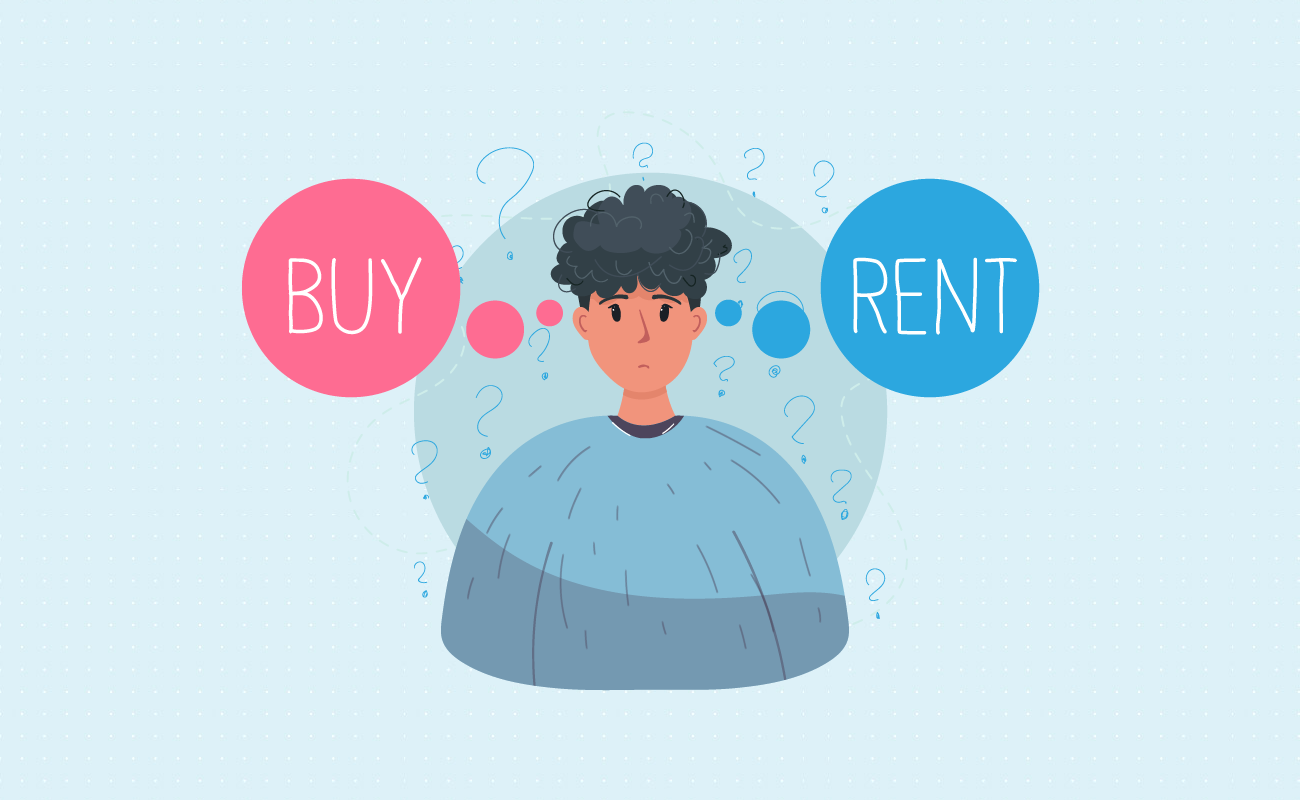
When deciding whether to buy or continue renting, ask yourself what you can afford now and in the future. Your financial situation might not make home ownership affordable. If your career will not let you settle down any time soon, consider foregoing home ownership for the time being.
If you do decide on buying a house, you must take the first steps to actualize your plan. While you wait for your next raise or promotion, make the effort to improve your cash flow. Work on your budget and make room for more savings. Set aside a dedicated savings account for your down payment. This way, you’ll be aware of your progress.
Bolster your cash flow further by paying off your debts. Focus your payments on one debt at a time, preferably the ones with the highest interest rates. This will help you save money in the long run. Paying your debts also improves your credit rating, which can help you secure more favorable loan terms in the future.
Want to know how big a mortgage can fit into your budget? Drop by our home affordability calculator!
Jose Abuyuan is a web content writer, fictionist, and digital artist hailing from Las Piñas City. He is a graduate of Communication and Media Studies at San Beda College Alabang, who took his internship in the weekly news magazine the Philippines Graphic. He has authored works professionally for over a decade.